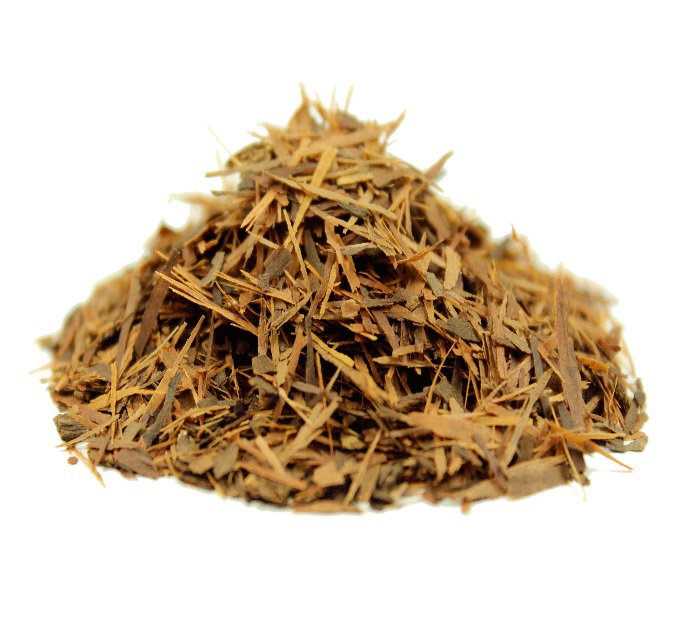Description
Botanical: Tabebuia impetiginosa (also known as Tabebuia avellanedae and Tabebuia heptaphylla)
Other common names: Taheebo, Lapacho, Bow Wood, Ipe Roxa, Trumpet Tree
The ancient Incas of Peru understood the importance of Pau D'Arco, and today its wonderful benefits are just beginning to surface, especially in the area of immunity enhancement and cell strengthening. Sometimes called the "Miracle Bark from South America," its therapeutic uses are somewhat controversial, but it is considered a powerful antiviral, anti-inflammatory and antibiotic, and that's just the beginning!
Country of Origin: Brazil
Beneficial Uses:
Pau D'Arco is reputed to possess significant and potent antiviral and antifungal properties and has been used as an effective treatment against viruses, yeast infections, such as Candida albicans, etc., herpes simplex, flu, gonorrhea, athlete's foot, warts, syphilis, venereal disease and vaginitis. Lapachol and beta-lapachone have demonstrated antibacterial, antifungal (fungistatic) and antimalarial activity.
Thought to be an effective anti-inflammatory and painkiller, Pau D'Arco has been used to reduce pain and inflammation of inflammatory conditions, such as arthritis and rheumatism. It is also believed to ease the temporary discomforts of inflammatory bowel disease and alleviate bowel pain.
Pau D'Arco is thought to promote and maintain normal blood sugar levels, which may be of help in cases of diabetes. It appears to prevent spillover of glucose into the urine and seems to act in the same manner as the prescription drug ingredient, acarbose, by keeping sugar from passing through the intestinal wall into the bloodstream.
Pau D'Arco is considered a mild laxative and diuretic, which also helps to clear toxins from the body. It promotes urine flow and supports urinary tract health, fighting such conditions as cystitis, prostatitis and other urinary infections. The herb is also thought to lower fever.
As a blood cleanser, Pau D'Arco is thought to purify and clear toxins from the blood and multiply the numbers of red corpuscles, which helps to build the blood and may be helpful in combating pernicious anemia and other ailments entailing blood deficiencies.
Pau D'Arco is considered an immune enhancer that is believed to strengthen and stimulate the immune system to produce macrophages, immune cells that engulf and digest bacteria and infectious microbes before they invade cell walls and cause damage to cells and tissue. The herb is said to combat chronic degenerative ailments, increase energy and stamina and has been used as part of a treatment to combat environmentally produced allergies and asthma.
Pau D'Arco is thought to be an excellent antibacterial and also support good digestion. In laboratory tests, the active ingredient, lapachol, reverses aspirin-induced irritation of the stomach lining, and may possibly have antibiotic effects on Helicobacter pylori, a bacterium associated with gastritis and peptic ulcer. Its antibiotic properties have also been useful in the treatment of dysentery.
Used externally, Pau D'Arco has been used to treat dermatitis, eczema, psoriasis, scabies, boils and many other skin infections.
Contraindications:
Pregnant and nursing women should not use Pau D'Arco, and excess amounts (many times the recommended dosage) may cause nausea, bleeding, vomiting, dizziness and diarrhea. People who take prescription anticancer drugs or those on chemotherapy should not use this herb without consulting with a physician. Because it may induce bleeding, people who take prescription blood thinners (Coumadin, etc.) should not use this herb, nor should it be used prior to surgery.


